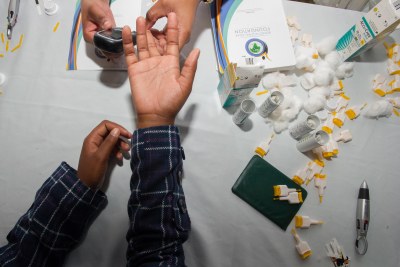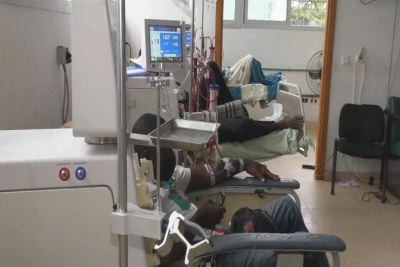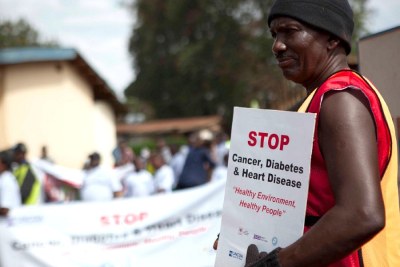-
Africa: Why African Countries Need Reliable Local Data On Sugary Drinks Taxes
The Conversation Africa, 20 April 2021
Diets in sub-Saharan Africa are changing as more countries advance from low-income to middle-income status. People's eating habits are shifting from food rich in starchy staples,… Read more »
-
Africa: African Countries Must Consider Legal Challenges to Sugar Taxes Before Pursuing Policies
The Conversation Africa, 20 April 2021
Sales of unhealthy foods and beverages in sub-Saharan Africa are skyrocketing. This is leading to an increase in obesity related conditons such as diabetes, hypertension and… Read more »
-
Zambia: Zambia Must Find a Way to Balance the Economy and Public Health in Tax Policy
The Conversation Africa, 20 April 2021
The burden of noncommunicable diseases is growing rapidly across sub-Saharan Africa. The conditions, which include obesity and diabetes, are now leading causes of premature deaths.… Read more »
-
Rwanda: How Rwanda Can Use Fiscal Policies to Improve Health Outcomes
The Conversation Africa, 20 April 2021
Rwanda's health sector has seen many reforms over the past two decades, which have greatly improved public health indicators. Communicable diseases have declined and the maternal… Read more »
Why Africa Needs Reliable Local Data on Sugary Drinks Taxes
Diets in sub-Saharan Africa are changing as more countries advance from low-income to middle-income status. People's eating habits are shifting from food rich in starchy staples, vegetables and fruits to a more westernised diet high in sugar, saturated fats and oils. This shift to unhealthy foods is fuelling obesity-related chronic, non-communicable conditions such as heart disease, diabetes and cancer. To discourage consumption and reduce health risks, an increasing number of low - and middle-income countries have imposed taxes on sugar-sweetened drinks. Some African countries such as South Africa, Botswana and Zambia are already taxing sugary drinks. But others have been slow to act. The WHO attributes this, in part, to evidence gaps. Indicators to measure sugar-sweetened drinks and added sugar consumption should be developed. These must be included in current data collection tools such as national income dynamics studies. This would ensure monitoring and evaluation of taxation, writes Agnes Erzse and Karen Hofman for The Conversation Africa.
InFocus
-
Until fairly recently Type 2 diabetes was considered a major health issue only in developed countries. But there's been an increase in prevalence in developing countries. This has ... Read more »
-
Scores of patients suffering from kidney failure, and their relatives, have reportedly blocked traffic around a Yaoundé hospital to protest the shortage of dialysis ... Read more »
-
A team made up of employees from the University of Geneva and from Doctors Without Borders, was able to show that an opened insulin cartridge can be stored for four weeks at 37 ... Read more »
-
High blood pressure, also known as hypertension, is a serious public health threat globally. If uncontrolled, it substantially increases the risk of disability and death from ... Read more »
-
Over 33% of all deaths in the country are caused by non communicable diseases (NCDs), leading to poverty and a downturn in the nation's economy. Common NCD risk factors include ... Read more »






